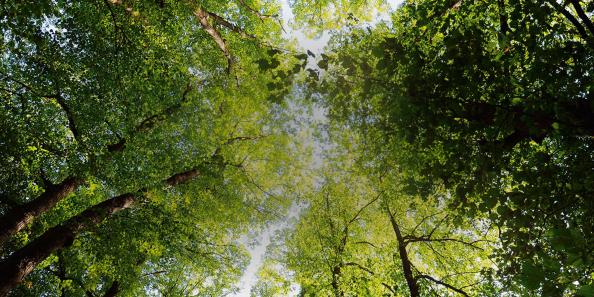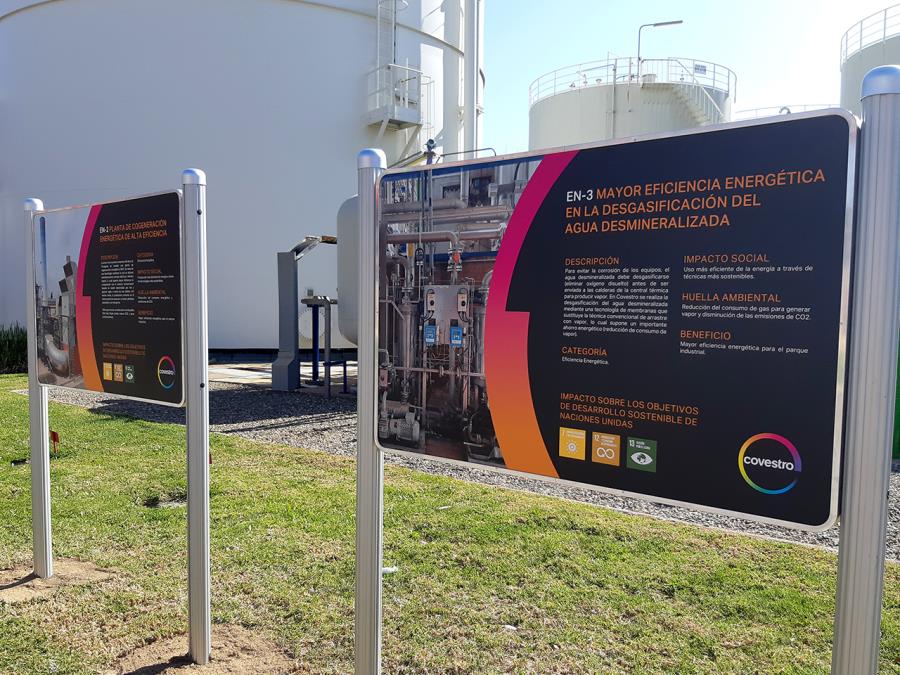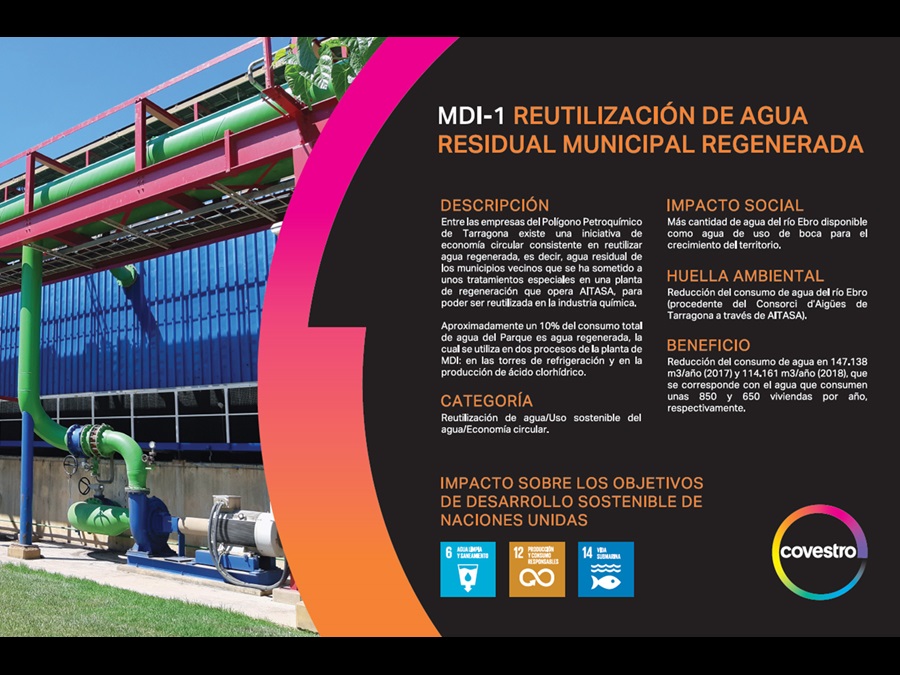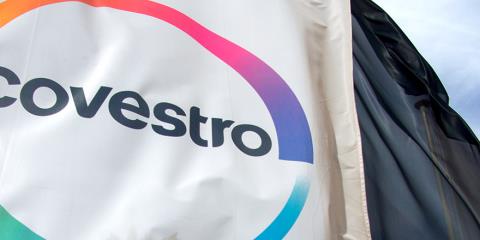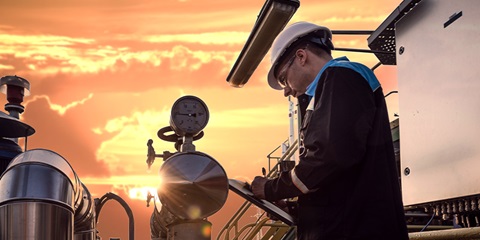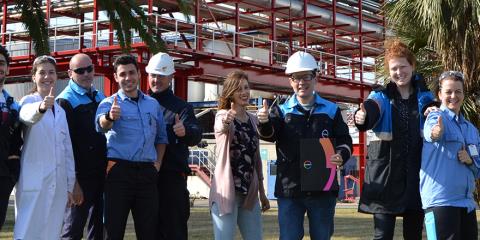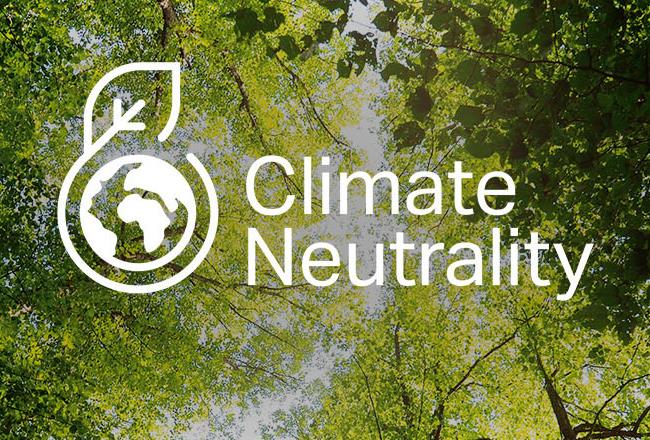
Becoming climate neutral and fully circular
That is why Covestro is entirely focusing its corporate vision on advancing the circular economy and become a shaping force for the entire plastics industry. By using alternative raw materials and renewable energy, Covestro is working towards shrinking plastic's environmental footprint, while also promoting innovative recycling technologies to inject recovered waste back into the value cycle as a valuable resource. At the same time, Covestro is pursuing climate neutrality by 2035 for its own emissions (scope 1) and external energy sources (scope 2). By 2050, Covestro wants to achieve climate neutrality by 2035 for scope 3 (upstream and downstream greenhouse gas emissions), which will be significantly lowered by 2025.
Accelerating sustainable solutions
Covestro in Spain continues to advance its strategy to achieve full circularity in the long term – in line with the company’s global commitment to achieving climate neutrality and net-zero emissions by 2035 in relation to its production and external energy sources. In 2022, the company invested more than €2.2m in Spain in projects to continue improving the sustainability and efficiency of its four Spanish sites in Tarragona, Barcelona, Parets del Vallès and Santa Margarida i els Monjos. These initiatives have focused on key areas such as the ongoing improvement of production processes, resource savings, and the commitment to alternative energy sources.
Alternative raw materials as new feedstocks
Fossil resources are dwindling and processing them for use in chemical products can also be very energy-intensive. For this reason, Covestro wants to increasingly tap into alternative raw materials. It has already done so in various parts of its production process, and is continuously working on additional projects. The long-term aim is, wherever possible, to completely exclude the use of fossil resources.
In Spain, the company produces and markets resins with up to 70% biomass sourced from plants and plant waste to replace fossil raw materials for coatings and adhesives in applications such as automotive, construction, wood and furniture, textiles, cosmetics, sports, and leisure.
First bio-based hardener
Desmodur® CQ Ultra is the world's first bio-based hardener for the production of lightfast polyurethane coatings with multiple applications, including automotive, plastics, wood, and industrial applications. The product is composed of 70% biomass, which helps to reduce its carbon footprint by up to 30% compared to the average fossil-based product.
Sustainable resins
Decovery® is part of a wider range of sustainable resins designed to offer high-performance products for the construction, furniture, and ink markets. These resins, some of which are manufactured at Covestro’s Parets del Vallès site, can contain up to 52% plant-based content from tree bark, castor beans or corn. The products in this family not only have a lower carbon footprint, but also perform as well as or better than their fossil alternatives.

Bio-based wood coating
Bayhydur® ultra CQ is a bio-based wood coating for furniture applications. It contains 61% renewable carbon from biomass and offers the same softness and durability as conventional fossil-based coatings.
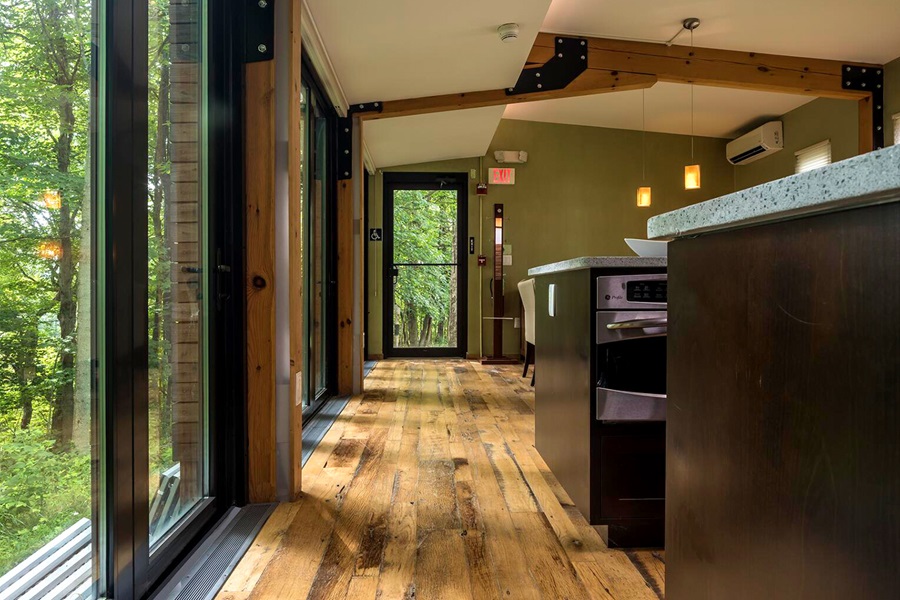
Improving the production processes and energy supply
Covestro’s processes require a lot of energy. The chemical industry is therefore doing a lot to optimize its efficiency and minimize the environmental impact of its own production processes. Covestro is accelerating the decarbonization of its production sites in Spain through energy transition measures.
ODC technology for a resource efficient chlorine production
The world's first chlorine plant with Oxygen Depolarized Cathode technology (ODC) in Tarragona is an example of Covestro’s commitment to energy efficiency. The plant uses 25% less energy in chlorine production than the hitherto best technology on the market. ODC technology also lowers CO₂ emissions by around 22,000 metric tons a year compared to the traditional method – equivalent to the annual amount emitted by approximately 15,000 vehicles.
Renewable electricity for the sites in the Barcelona region
From 2022, Covestro’s three sites in the Barcelona region – Barcelona, Parets del Vallès and Santa Margarida – operate solely on renewable electricity. As the Barcelona site consumed over 7,000 MWh in 2021, the reduction of around 1.4 million kg of CO₂ emissions per year is equivalent to the average annual consumption of 1,500 homes. The company is also working to ensure that the Tarragona plant, which has much higher energy requirements, will soon be able to operate on electricity from renewable sources.
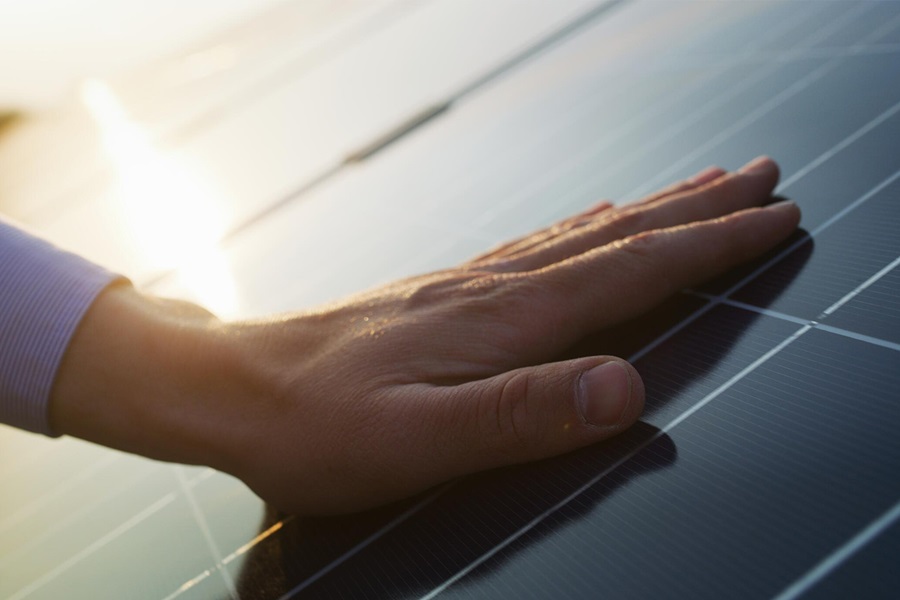
Managing energy efficiency with STRUCTese®
The MDI plant in Tarragona uses STRUCTese®, an innovative energy management system patented by Covestro that enables more efficient use of resources. As a result, the actual energy consumption of production processes can be measured, controlled, and compared with the optimal potential in order to eliminate inefficiencies and, consequently, improve energy savings. At this plant, the software guarantees annual savings of around 3,200 MWh. Globally, all the projects using this technology since 2008 have achieved energy reductions totaling 2.32 million MWh and annual savings of around 700,000 tons of CO₂ emissions.
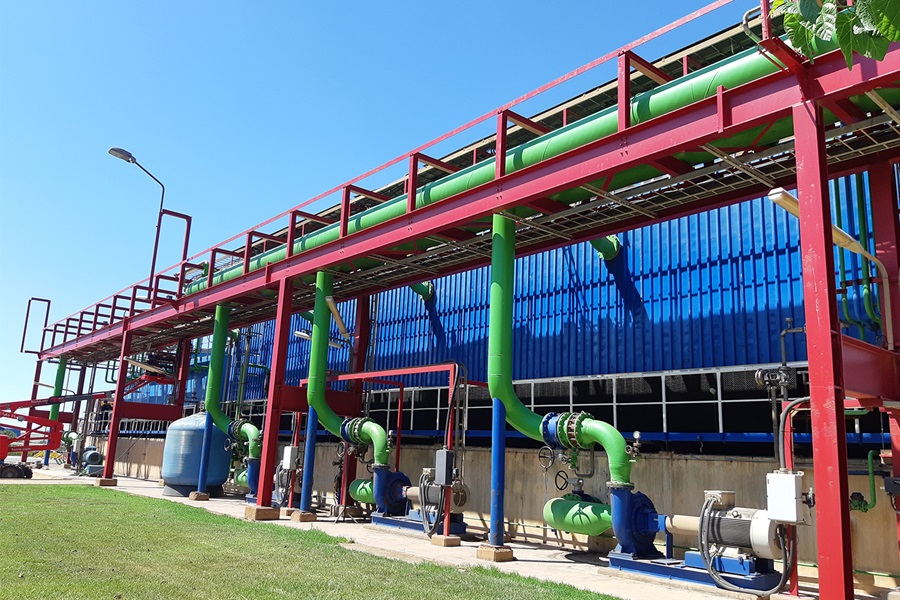
Sustainability tour in Tarragona
Covestro has highlighted some of its sustainability activities on information boards in Tarragona. The goal is to show which climate-friendly technologies and processes are being used to produce innovative material solutions. The information boards allow people from the surrounding area to learn more about the company's efforts while on a sustainability tour of the site.
Statement of Non-Financial Information (EINF)
More information about Estado de la Información No Financiera (EINF)








